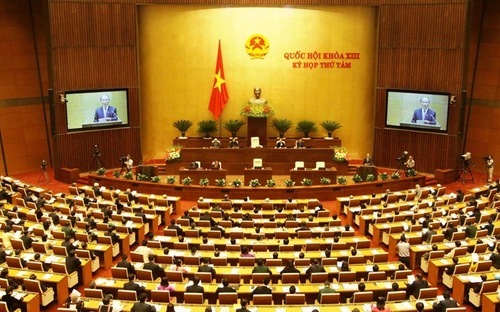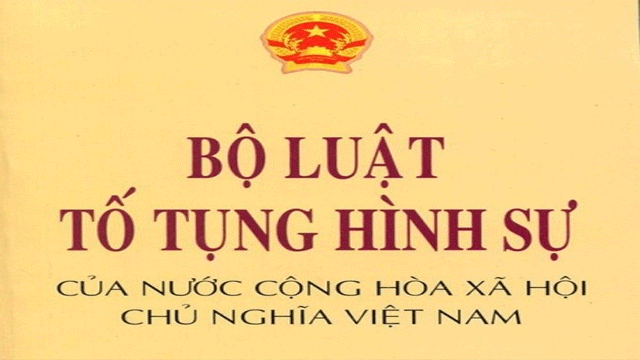Draft Circular detailing the adjudication of criminal cases (VAHS) involving persons under 18 years old under the jurisdiction of the Family and Juvenile Court is currently being solicited for public comment by the Supreme People's Court with several notable and attention-worthy provisions, such as:
Draft Circular clearly states that the scope of the Circular is to adjudicate criminal cases where the defendant is under 18 years old or criminal cases where the defendant is 18 years old or older but the victim is under 18 years old and is seriously psychologically harmed or requires support in living and education due to the lack of a healthy family environment like other under-18 individuals. under the jurisdiction of the Family and Juvenile Court.
Four Criminal Cases outside the Jurisdiction of the Family Court
Criminal cases involving individuals under 18 years old that do not fall under the jurisdiction of the Family and Juvenile Court include:
- Criminal cases with defendants aged from 16 to under 18 who commit very serious intentional crimes and especially serious crimes.- Criminal cases with defendants aged from 14 to under 16 who commit one of the especially serious crimes specified in Clause 2, Article 12 of the Criminal Code.- Criminal cases with both under-18 and over-18 defendants, but the organizer, principal, leader, or commander is an over-18 individual.- Criminal cases where the victim is not under 18 and seriously psychologically harmed or requires support in living and education.
Experience Requirements for Judges and Jurors
When adjudicating criminal cases involving participants under 18 years old, the Chief Justice assigns a trial panel that meets the following two conditions:
Firstly, the Judge must have at least two years of experience in adjudicating cases involving individuals under 18 or have received training in psychology, educational science for individuals under 18, and skills in handling criminal cases involving participants under 18.
Secondly, one Juror must be a teacher or officer from the Ho Chi Minh Communist Youth Union or an individual with experience and understanding of the psychology of those under 18.
Individuals with experience and understanding of the psychology of those under 18 include:
- Judges from the Family and Juvenile Court;- Retired teachers;- Commune-level cultural and social officials;- Child protection officials at the commune level;- Social workers and child collaborators;- Individuals who have worked at agencies or organizations involved in crime prevention and education for individuals under 18;- Case managers responsible for child protection and care at the commune level;- Representatives of the Women’s Union, Children’s Rights Protection Association, Veterans' Association with experience in managing, educating, and assisting juvenile offenders and law violators, or other individuals with experience and understanding of juvenile psychology.

Illustrative Image
No Mobile Court for Criminal Cases with Individuals < 18 Years
Closed Trials but Public Sentencing
The Draft Circular stipulates that the adjudication of criminal cases involving defendants, victims, or witnesses under 18 must conform to Articles 414 and 423 of the Criminal Procedure Code, specifically:
- For cases where the victim is under 18 and has been sexually abused or trafficked, closed trials are required;- For other cases requiring closed trials, the trial will be closed, but the sentencing must be public as prescribed in Article 327 of the Criminal Procedure Code.
Postponement of Trial if Representatives, Schools are Absent
In criminal trials involving individuals under 18, the participation of the defendant's representative under 18, as well as representatives from their school, organization, or institution where they study or work, is a procedural requirement that must be ensured. Accordingly:
- If the defendant's representative, or the representative of the school, organization, or institution where the defendant studies or lives, is absent due to force majeure or objective obstacles, the Court must postpone the trial;- If the defendant's representative or the representative of the school, organization, or institution where the defendant studies or lives, is absent without force majeure or objective obstacles, the Court proceeds with trial according to common procedures.
Limit Contact between Victims, Witnesses, and Defendants during Testimony
This is the responsibility of the trial panel when taking testimony from victims, witnesses, and defendants during the trial.
For cases involving child sexual abuse or trafficking of individuals under 16, the trial panel may take testimony in isolation and transmit information and images to the courtroom. In such cases, the testimony should involve the participation and support of a psychologist, social worker, or child protection officer.
 Article table of contents
Article table of contents





.Medium.png)
.Medium.png)
.Medium.png)
.Medium.png)
